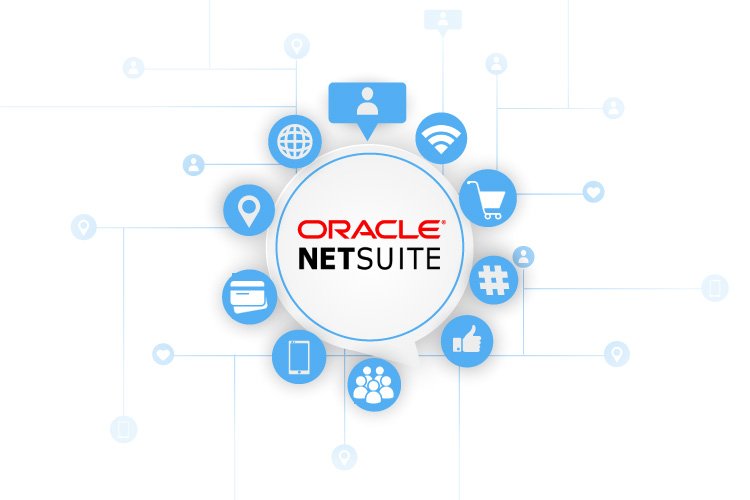How to Make a Clear Business Case for NetSuite Cloud ERP

Getting executive buy-in for a major software implementation isn’t always easy, but when you can clearly illustrate the massive value that the organization will get in return for the effort it makes the process a whole lot easier.
Replacing legacy, on-premises enterprise systems with NetSuite’s modern, cloud-based enterprise resource planning (ERP) platform, for example, helps organizations leverage automation, compete more effectively, streamline their operations and improve their profitability.
With the SuiteSuccess implementation framework — which uses industry-specific best practices to eliminate implementation barriers and speed up the overall process, we are able to get companies up and running quickly.
As proof, we can look to one global provider of electrification and powertrain components that was trying to operate its growing business on QuickBooks, spreadsheets, numerous bookkeeping systems and multiple different ERP systems. The hodgepodge of software was due to the manufacturers’ acquisition of several companies, all of which were using legacy systems like Sage.
The company’s acquisitions and its own organic expansion combined to create a need for a system that could handle multi-currency and multi-company transactions on a single platform. It needed NetSuite to bring everything under a single roof and worked with Sansa Solutions to achieve that goal. The company also needed:
- Real-time visibility of its operational data for better decision-making
- Common practices and processes across all of its global business units
- Standardization of data and other information across the company
- Self-service access to that data for authorized individuals within the company
- Better collaboration across its many different business units
Like many organizations right now, this manufacturer was also spending too much time transferring data and information between its older systems that needed excessive customizations at the outset and that had been continually tailored over time. The company’s associates were spending too much of their time collecting data from those systems instead of actually analyzing and acting on that data.
This industrial manufacturer definitely isn’t alone. In fact, many companies spend weeks or even months gathering numbers, putting them in spreadsheets, and then sharing those documents across the organization. By the time managers and leaders get their hands on those reports, it’s too late to act on the data in a meaningful way. With NetSuite, the same decision-makers have instant access to real-time data at their fingertips.
Taking the Step with a NetSuite Implementation
If your organization is throttled by disparate systems, legacy software and manual processes, the first step is to build a business case that illustrates the benefits, costs, opportunities and risks of launching an implementation project. “By breaking down data silos,” NetSuite points out, “ERP connects the dots on business processes including accounting, operations, manufacturing, sales and HR; enables better financial planning and analysis and reporting; and adds efficiencies through automation technology.”
Replacing disparate legacy systems and spreadsheets with a unified ERP may be a big step, but it’s one that produces both instant and long-term rewards. Once they’ve taken the step, most organizations quickly see that the risk-reward ratio comes out firmly in their favor. For organizations that are in the decision phase, SuiteSuccess offers a level of insurance and a proven path to success that many other organizations have already successfully navigated.
An implementation framework designed to manage all aspects of a business on NetSuite SuiteSuccess packages the experience and learnings gained from many worldwide ERP deployments into a set of leading practices. Companies can be up and running on NetSuite quickly and efficiently, while leveraging all of the system’s key performance indicators (KPIs), workflows, reports and value-driven dashboards from day one.
With SuiteSuccess, organizations can move off of their legacy systems without disrupting their operations. This is a major benefit in a fast-moving business world, where fast software implementations mean faster ROI, better competitive advantage and higher profitability. For any company that’s not already leveraging cloud software, but that wants to make the move SuiteSuccess fulfills the role of both catalyst and facilitator.
10 ERP Implementation Questions to Ask Yourself
For organizations that are considering a move to NetSuite, the ERP provider offers a business value analysis service at no charge. Through this exercise—which is orchestrated by a value advisor—companies get a full view of all of the benefits that the ERP offers their specific operations. The value advisors also compare the costs of running current systems with using cloud ERP, and provide specific savings projections and timelines for achieving those cost savings.
Regardless of how you build your business case, some of the key questions to ask yourself include:
- 1. What are our current technology and operational pain points?
- 2. Which processes do we want to fix?
- 3. How can we benefit from process improvements?
- 4. What are the solutions to our pain points?
- 5. What do we want to accomplish?
- 6. What is our “future state” vision?
- 7. Which ERP vendors have expertise in our industry?
- 8. Which ERP solution is best for our organization and requirements?
- 9. What cost factors should be considered?
- 10. Which ERP solution offers capabilities and functionalities that support our goals?
Sansa Solutions extends NetSuite’s capabilities by putting experienced team members on every project and then fully leveraging those individuals’ decades of experience in the enterprise resource planning world. To say we’ve “seen it all” would be an understatement; we’ve successfully worked with a wide range of companies across myriad industry verticals around the globe. We’ve learned a few things along the way, with one of the main lessons being that having a strong partner in your corner is a great way to be able to both build and prove a business case for NetSuite.